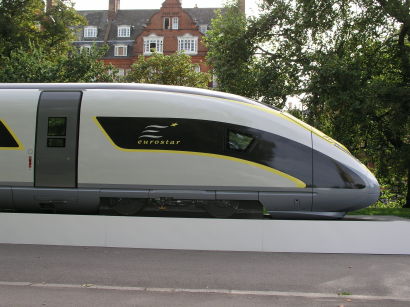EUROSTAR’s apparent victory in court over a challenge to its new trains order from Alstom may not have settled the matter.
Alstom said that it is continuing to ‘pursue alternatives’ after failing to gain a preliminary injunction halting Eurostar’s purchase of Siemens trains.
The French train-builder had sought to block Eurostar's E500 million+ order for ten Velaro units, dubbed e320, on the grounds that the sets do not meet Channel Tunnel safety rules and also that Eurostar's procurement process was flawed.
However, in the High Court on Friday, Judge Geoffrey Vos said that if the injunction was granted and the matter went to a full hearing, it would probably not be resolved until the spring. Such a delay would be ‘costly’ to the travelling public, he added.
Although Eurostar said it was ‘very pleased’, and stood by its processes, Alstom said it was now taking its grievances to the European Commission.
Eurostar wants to use the 320km/h trains to extend its network in 2014, providing direct services to such destinations as Lyon, Geneva and Amsterdam.
Its present fleet of Alstom-built trains would not be suitable, because there is insufficient room on them for the additional technical equipment which would be required. The matter is made worse by the fact that the Eurostar fleet was built at the start of the 1990s to the smaller British loading gauge, so that Eurostar could use the domestic network in Britain to reach Waterloo.
The opening of the European-gauge High Speed line to London in 2007 means that future Eurostars can be full size. Neither will they need to cope with British domestic signalling and train control systems.
Meanwhile the High Speed line itself, which was dubbed High Speed 1 in late 2006, is set to have a new owner this week, at least for the next three decades.
The government is expected to announce the winner among four consortia who are seeking to obtain a 30-year lease on the route.
Eurostar new trains row may not be over yet
2nd November 2010


